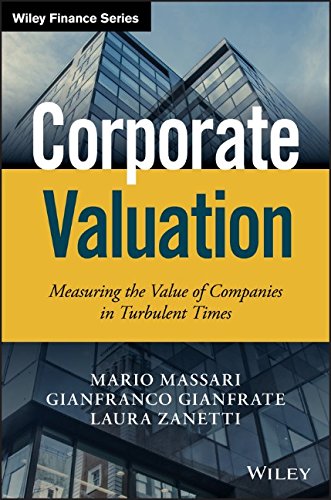

Most ebook files are in PDF format, so you can easily read them using various software such as Foxit Reader or directly on the Google Chrome browser.
Some ebook files are released by publishers in other formats such as .awz, .mobi, .epub, .fb2, etc. You may need to install specific software to read these formats on mobile/PC, such as Calibre.
Please read the tutorial at this link: https://ebookbell.com/faq
We offer FREE conversion to the popular formats you request; however, this may take some time. Therefore, right after payment, please email us, and we will try to provide the service as quickly as possible.
For some exceptional file formats or broken links (if any), please refrain from opening any disputes. Instead, email us first, and we will try to assist within a maximum of 6 hours.
EbookBell Team

4.8
34 reviewsCorporate Valuation presents the most up-to-date tools and techniques for more accurate valuation in a highly volatile, globalized, and risky business environment. This insightful guide takes a multidisciplinary approach, considering both accounting and financial principles, with a practical focus that uses case studies and numerical examples to illustrate major concepts. Readers are walked through a map of the valuation approaches proven most effective post-crisis, with explicit guidance toward implementation and enhancement using advanced tools, while exploring new models, techniques, and perspectives on the new meaning of value. Risk centrality and scenario analysis are major themes among the techniques covered, and the companion website provides relevant spreadsheets, models, and instructor materials.
Business is now done in a faster, more diverse, more interconnected environment, making valuation an increasingly more complex endeavor. New types of risks and competition are shaping operations and finance, redefining the importance of managing uncertainty as the key to success. This book brings that perspective to bear in valuation, providing new insight, new models, and practical techniques for the modern finance industry.
Traditional valuation models are inaccurate in that they hinge on the idea of ensured success and only minor adjustments to forecasts. These rules no longer apply, and accurate valuation demands a shift in the paradigm. Corporate Valuation describes that shift, and how it translates to more accurate methods.